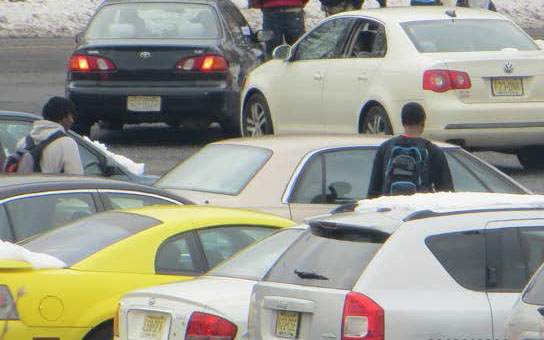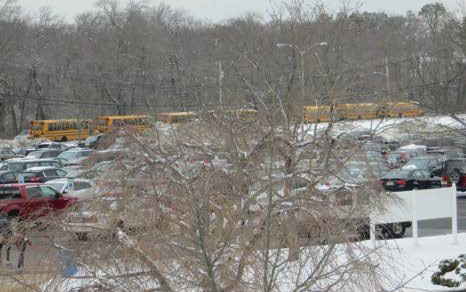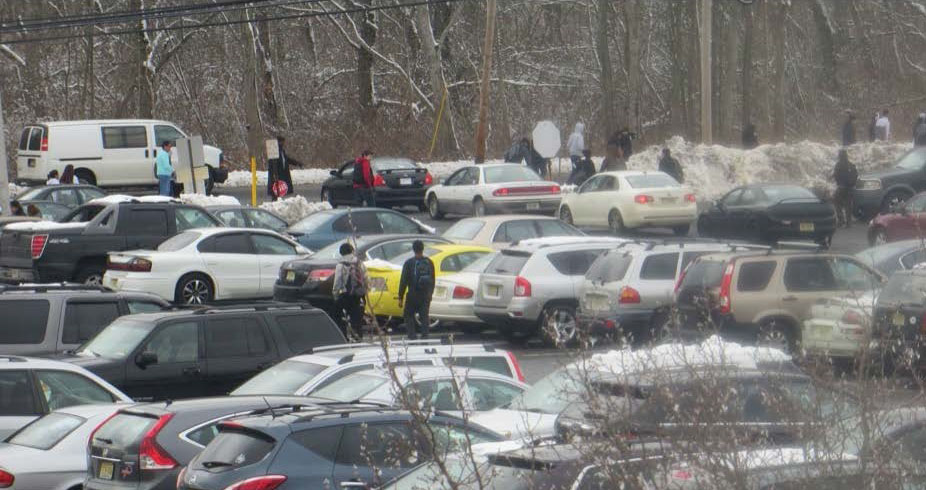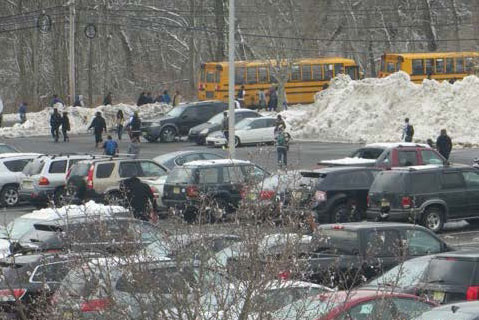School Law

What liabilities are involved in dismissing students into an active parking lot?
Municipalities and school districts have broad immunity from liability for damages, particularly for damages arising under premise liability (N.J.S.A. 59:2-6), for discretionary acts (N.J.S.A. 59:2-3), and for failure to supervise recreational facilities open to the public (N.J.S.A. 59:2-7). However, school districts are liable for the negligence of their personnel in the supervision of pupils.
Let us examine the former procedure of a New Jersey school in which students had to cross through the parking lot to reach their busses. The question is whether an injury to a student in the parking lot by a driver of an automobile would be also considered to be the result of a negligent breach of duty to supervise. If yes, then the district is liable under the principal of respondiat superior, or vicarious liability. N.J.S.A. 59:2-2 provides:

a. A public entity is liable for injury proximately caused by an act or omission of a public employee within the scope of his employment in the same manner and to the same extent as a private individual under like circumstances. b. A public entity is not liable for an injury resulting from an act or omission of a public employee where the public employee is not liable.”
Normally, one person does not have any duty of supervision or the duty to provide for the welfare of another unless they are under a parent/child or husband/wife relationship. In schools, the “relationship between the child and the school authorities is not a voluntary one but is compelled by law. The child must attend school and is subject to school rules and disciplines. In turn the school authorities are obligated to take reasonable precautions for his safety and well-being.” Jackson v. Hankinson, 51 N.J. 230, 235 (N.J., 1968). “The duty of school personnel to exercise reasonable supervisory care for the safety of students entrusted to them, and their accountability for injuries resulting from failure to discharge that duty, are well-recognized in our State and elsewhere.” Titus v. Lindberg, 49 N.J. 66, 73 (N.J., 1967). The in loco parentis responsibility of school personnel continues after dismissal while students are traversing the parking lot to their buses.
Duty is also created, say, when a shopkeeper invites a customer into his or her store. The “duty of care of a storekeeper includes the exterior premises as well as the store itself: 'It is unnecessary to dwell on the fact that getting groceries out of a store is just as important a part of the shopping operation as paying for them, and that a duty devolves upon the store owner to keep his building approaches as safe as the interior of his establishment.'” Nelson v. Great Atlantic & Pacific Tea Co., 137 A.2d 599, 48 N.J.Super. 300, 306 (N.J. Super. A.D., 1958). Unquestionably, the duty to supervise students walking to the bus is just as important as the duty to supervise students walking in the building.
In a negligence case, a court will ask if an injury was reasonably foreseeable. Was it reasonably foreseeable that an automobile would injure students traversing the parking lot to reach the buses on Somerset Avenue? Even if a fact finder concludes, quite reasonably, given the hundreds of students in the parking lot and the scores of moving cars, that it was foreseeable, the court will further ask if reasonable care was exercised.
Reasonable care is a question of acceptable risk. The analysis involves a balance between efficiency, costs, and the probability and amount of injury. Was there a reasonably alternative bus loading area? If not, could administrators have exercised more supervisory care in bringing students to the Somerset loading area?
A board attorney would be hard pressed in convincing a jury that dismissing through an active parking lot is safer than dismissal into a barricaded street. If a driver ran a street barricade and injured a student, the district would not likely be liable. “A person acts negligently when he or she does not take reasonable precautions to prevent causing harm to another. To determine whether a defendant's conduct is negligent, we consider what a ‘prudent man’ would have done in the defendant's circumstances” Pfenninger v. Hunterdon Central Regional High Sch., 770 A.2d 1126, 1132 (N.J., 2001). A “prudent man” would set up barricade; a driver running the barricade would be entirely unforeseeable.
Even a district employee illegally driving past the barricade would not make the district vicariously liable for his breach. N.J.S.A. 59:2-10 “A public entity is not liable for the acts or omissions of a public employee constituting a crime, actual fraud, actual malice, or willful misconduct.” Even if the only possible location for loading the buses was indeed Somerset Avenue, would a prudent supervisor of students allow them to walk haphazardly through the parking lot? Schools are supposed to have safe loading and unloading zones. Although Chapter 26 applies to new projects, it is instructive of the reasonable care standard. N.J.A.C 6A:26-6.3 provides, “c) Entrance and exit requirements are as follows: 1. Pick-up and drop-off areas shall be designed to provide safe entrances and egress for students and adults; 2. There shall be clearly marked walkways from drop-off areas into school facilities, and entrances to school facility shall be clearly marked.”

If students are to walk to the buses on the other side of the parking lot, they should walk on “clearly marked walkways from drop-off areas into school facilities, and entrances to school facility shall be clearly marked.”
Finally, we must determine whether the failure to supervise is the proximate cause of the theoretic injury in the parking lot. Proximate cause is "that combination of `logic, common sense, justice, policy and precedent' that fixes a point in a chain of events, some foreseeable and some unforeseeable, beyond which the law will bar recovery." Pfenninger, 770 A.2d at 1133. Ordinarily, “a commercial establishment which provides parking facilities for its patrons across a public roadway has a duty to exercise reasonable care for their safe passage from there to the commercial establishment and back.” Ross v. Moore, 533 A.2d 398, 221 N.J.Super. 1, 7 (N.J. Super. A.D., 1987). The proprietor’s failure to exercise reasonable care can be the proximate cause of an injury resulting from an accident. “[R]easonable care for the safety of its patrons extends to conditions obtaining at the parking lot and requires that the patrons not be subjected to an unreasonable risk of harm in traversing the expected route between the two locations.” Warrington v. Bird, 204 N.J.Super. 611, 617 (N.J. Super. A.D., 1985). Other states disagree with New Jersey when the injury occurs off-property on a public highway.
The same law should apply in the school setting since administrators and teachers are “accountable for injuries resulting from their tortious acts and omissions under ordinary principles of negligence. . .” Jackson v. Hankinson, 51 N.J. 230, 235 (N.J., 1968).

